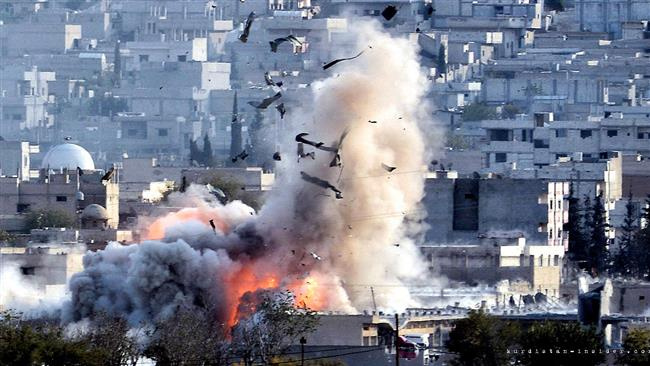Iraq; rebuilding what US bombs destroyed

By: Reza Bahar
But the question is what nation the US has built recently and that is it possible to imagine a meaningful role for Washington in reconstructing of a war-torn country, say Iraq, devastated in a US-led invasion?
'Clearly their priorities are to bomb and destroy other countries – not to rebuild them,' said Nicolas Davies, author of ‘Blood On Our Hands’ according to the Russia Today.
It was the United States that prior to the invasion of Iraq in 2003, manipulated the masses into believing that the deposed Iraqi dictator Saddam Hussein possessed weapons of mass destruction, was involved in the 9/11 terrorist attacks on the Twin Towers, had mobile labs producing chemical weapons, and that Saddam and Al Qaeda leader Osama bin Laden were closely allied.
'We all know the reality is that it was the US and the UK who invaded and destroyed Iraq,' Davies said.
And the US-led invasion in addition to all the devastation and plight it brought to Iraq, gave rise to Daesh (ISIS) terrorists and the war-ravaged country soon turned into a terrorist safe haven from where the terrorists could plan and launch their attacks on the whole region and even across the world.
'There is plenty of blame to go around in terms of the rise of ISIS. And the US deserves some blame as well – largely… in terms of removing Saddam Hussein, which created a power vacuum, which allowed Al-Qaeda’s fiercest affiliate Al-Qaeda in Iraq (AQI) to develop, and that morphed eventually into ISIS,' Max Abrahms, assistant professor at Northeastern University in Boston, Massachusetts.
Now with Daesh terminated mainly as a result of an extensive campaign by regional countries, including Iran, Iraq is planning to reconstruct itself.
Iraq is seeking 88.2 billion dollars in aid from donors to fund its reconstruction efforts and world leaders and senior politicians have gathered for a third and final day on Wednesday in a forum in Kuwait dubbed the Kuwait International Conference for Reconstruction of Iraq to raise funds.
It was Washington that set Iraq on the path to catastrophe, but it has proved not to be serious enough to help rebuild the country.
'The history of the US funding for reconstruction is utterly shameful. The US Congress in 2003 appropriated $18 billion. Five years later the US General Accounting Office concluded that only 24 percent of US reconstruction funds for Iraq had ever been dispersed…,' Davies said.
What is important for the United State is keeping its presence in the region.
In 2003, the US invaded the region to allegedly stop terrorism, but it promoted Daesh. Now and more than one decade later it is still seeking to stay in the region this time to engage in the reconstruction efforts of a country it was behind its destruction.
Iran as a country that has been engaged in a relentless war against terrorists, has always called on the countries in the region to rely on their own resources to promote peace and security.
Now in the post-Daesh era, Iran again has expressed readiness to help reconstruct countries destroyed in wars waged by foreign troops.
The United States is no longer the sole dominant, world power and it should forget the idea that no one - and no country - can exert regional dominance without its express permission.
President Trump said that US is not going to embark on building nations again.
But he should try not to forget that the era of such hubris has gone.
Source: IRNA

